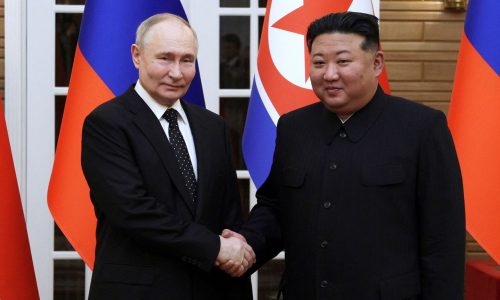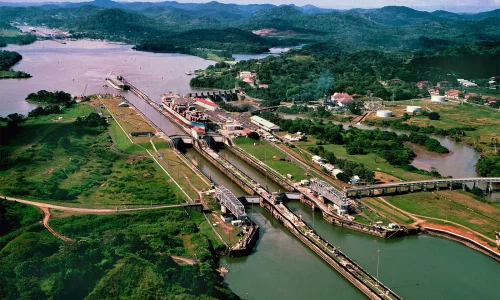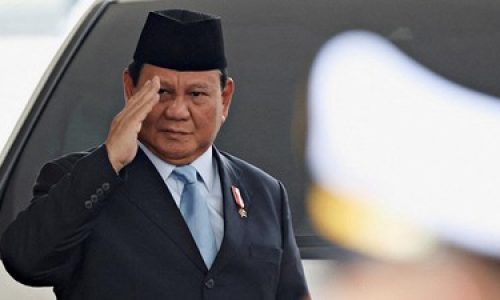
By: Sampe L. Purba
President Prabowo Subianto conducted his first official overseas visit to the People’s Republic of China (PRC) from November 8 to 10, 2024. In the bilateral meeting with the Chinese delegation led by President Xi Jinping, President Prabowo emphasized that China is not only a global power but also a great civilization that has been collaborating with Indonesia for centuries. In the current geopolitical and geo-economic dynamics, Indonesia’s strategic partnership with China in bilateral, regional, and multilateral contexts will enhance a conducive atmosphere, especially in Asia.
There are 14 Joint Statements between China and Indonesia to advance their comprehensive strategic partnership for a shared future. Two of these statements are interrelated and attract the attention of many observers in Indonesia.
The ninth statement emphasizes the need for both sides to jointly create more bright spots in maritime cooperation. This point specifically relates to the overlapping claims in the South China Sea (SCS), known as the North Natuna Sea in Indonesia. Both parties reached an important understanding of joint development in areas of overlapping claims and agreed to establish an Inter-Governmental Joint Steering Committee to explore and advance relevant cooperation based on the principles of “mutual respect, equality, mutual benefit, flexibility, pragmatism, and consensus,” in accordance with their respective laws and regulations.
Both sides also affirmed that this cooperation remains within the context and concept formulated with countries in the region known as the Declaration on the Conduct of Parties in the South China Sea (DOC) and the Code of Conduct (COC) based on consensus-building in maintaining peace and stability in the SCS.
The tenth statement indicates that both parties will jointly build a new pillar of bilateral defense and security cooperation. The previous strategic cooperation between China and Indonesia covered four pillars: economic and trade cooperation, social and cultural cooperation, maritime cooperation, and infrastructure and connectivity cooperation.
The fifth pillar of defense and security cooperation represents an expansion of the 2007 Defense Cooperation Agreement (DCA) into a more holistic and integrated agreement. This fifth pillar includes four detailed aspects: broader development cooperation, including counter-terrorism and transnational crime; military and civil cooperation, including capacity building for security institutions; joint exercises, including humanitarian assistance and disaster relief; and maritime security, including maritime safety efforts and combatting crimes at sea.
Sovereignty and sovereign rights at sea
There are five types of waters recognized by UNCLOS (the United Nations Convention on the Law of the Sea): Territorial Sea, Exclusive Economic Zone (EEZ), High Seas, Contiguous Zone, and Internal Waters. Full Sovereignty of a state over its waters is limited to Internal Waters and Territorial Sea up to 12 nautical miles from the baseline. In the Contiguous Zone up to 24 nautical miles, a state can enforce laws related to customs, immigration, and security regulations. In the EEZ up to 200 nautical miles from the baseline, states have exclusive rights to explore and exploit resources, known as sovereign rights. The High Seas are beyond national jurisdiction.
UNCLOS 1982 is approved by 169 countries and the European Union. UNCLOS differentiates Coastal States and Archipelagic States. Only five Archipelagic States are recognized by UNCLOS: The Bahamas, Fiji, Indonesia, Papua New Guinea, and the Philippines.
There are 15 countries that do not recognize UNCLOS, although they follow the principles of maritime law regulated by the convention. One of the major countries that does not ratify UNCLOS is the United States, primarily due to concerns that UNCLOS would reduce its freedom to conduct seabed mining operations and navigation on the high seas, and a lack of confidence in the United Nations’ role in managing global marine resources.
Joint development area
On May 7, 2009, China submitted note number CML/17/2009 to the United Nations, asserting its indisputable sovereignty over the South China Sea, including jurisdiction and sovereign rights over the seabed and subsoil. The note included a map with a dotted line commonly known as the nine-dash line, covering approximately 3.5 million square kilometers.
The International Arbitration Tribunal in 2016 declared that China’s claims over the SCS based on the nine-dash line have no legal basis. However, China continues to maintain its claims. Although deemed illegitimate under international law, it does not mean China loses its claim rights.
At least six countries have claims over parts of the South China Sea: China, the Philippines, Vietnam, Malaysia, Brunei, and Taiwan. As explained, the EEZ is not a sovereignty area of a state. When there is an overlap of claims in the EEZ, the resolution mechanism involves diplomacy and law. Some methods include bilateral or multilateral negotiations, joint development agreements (JDA), arbitration or international courts, international mediation, or using UNCLOS mechanisms.
Several countries adopt the JDA approach in overlapping areas, such as Thailand, Malaysia, and Vietnam in the Gulf of Thailand. In the Southern Hemisphere, Australia and Timor-Leste also apply this, known as the Timor Sea Treaty.
Conclusion
Indonesia has about 83,000 square kilometers of EEZ in the South China Sea, with around 35,000 square kilometers overlapping with China’s claims. Indonesia is not one of the countries that contest claims over the South China Sea. Historically, Indonesia’s approach has been symbolic, such as the head of state visiting the SCS, renaming it the North Natuna Sea, and affirming that the International Arbitration Tribunal and UNCLOS 1982 do not recognize China’s claims over the SCS. Such approaches are like keeping fire beneath the ashes, psychologically hindering broader and more productive cooperation.
The joint statement by President Prabowo Subianto and President Xi Jinping on the joint development plan in the South China Sea holds strategic significance. It will include joint resource management, increased investment, technology transfer, capacity building (for maritime and fisheries industries), and contribute to regional stability. For China, this is also an important signal to other major countries like the United States, which promotes the FOIP (Freedom of Indo-Pacific) viewed as intervening in China’s front yard.
The Indonesia-China JDA plan, based on principles of mutual respect, equality, mutual benefit, flexibility, pragmatism, and consensus, as well as recognition of international law, ensures and safeguards that no sovereign rights of either country are sacrificed.
The writer, Senior Advisor to the Minister of Energy and Mineral Resources (2019-2023), holds Doctoral degree in Energy Geostrategy and is an alumnus of the Indonesian Defense University.









